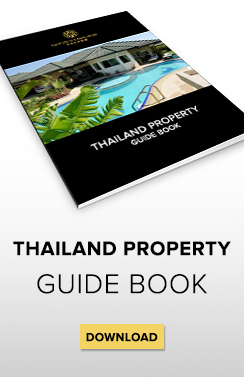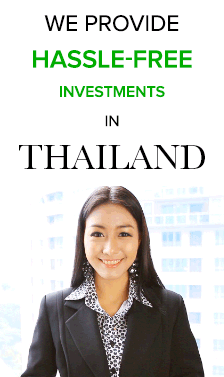Q2 showing likely eclipsed Q1
The country’s second-quarter economic growth outpaced the 4.8% rate in the first quarter, propelled by robust exports and stronger domestic investment and consumption, says a senior central bank official.
Thailand’s economy for the April-to-June quarter continued to gain traction across the board, driven by both domestic and external demand, led by exports, domestic investment and consumption, said Pornpen Sodsrichai, director of the Economic Analysis Office at the Bank of Thailand.
“Economic growth in the second quarter fared better than the first, with broader-based expansion,” she said. “But we will wait for the official announcement from the National Economic and Social Development Board.”
The NESDB, the government’s think tank, is due to release the country’s GDP reading for the second quarter on Aug 20. The country’s economy expanded at the fastest pace in five years at 4.8% in the first quarter.
The central bank also predicted the country’s economic momentum would continue this half, albeit at a slower clip thanks to the high base effect, Ms Pornpen said.
The Bank of Thailand in late June upgraded its economic growth outlook to 4.4% for 2018 and 4.2% for 2019, up from 4.1% for both years, after stronger-than-expected GDP growth in the first quarter.
She said that exports, domestic investment and consumption would be the key factors driving economic expansion this half, but external risks, particularly the trade rift between China and the US, will persist, putting pressure on the Thai economy, said Ms Pornpen.
In June, the Thai economy expanded broadly, driven by both internal and external factors. The country’s export and tourism growth was 10% and 11%, respectively.
Private investment expanded 4% year-on-year in June, up from 2.6% in May, because of investment in machinery and equipment. The country’s capacity utilisation increased to 70% in June from 69.5% in the previous month.
Public spending, excluding transfers, rose both in terms of capital and current spending in June, albeit at a slower pace than the previous month.
Headline inflation that month decreased slightly to 1.38% from 1.49% in the preceding month, mainly because of softer fruit and meat prices on the back of oversupply, coupled with the high base effect from vegetable prices.
Ms Pornpen said amid the positive economic momentum and tourism growth in June, the ferry disaster in Phuket will take a toll on July visitor numbers. But she said the effects from that tragedy are expected to be limited to Phuket.
The central bank’s survey recorded a month-on-month double-digit decline in hotel occupancy rates for foreign tourists in Phuket last month. The sharp drop was attributed to falling tourism confidence, particularly Chinese visitors, after the accident.
But the Bank of Thailand needs to update the hotel booking rate in Phuket throughout July to determine the actual impact.
Foreign tourist numbers hit 3.02 million in June, growing 11.6% year-on-year.
source : Bangkok Post
$2.6b expansion plan for Bangkok’s Suvarnabhumi airport to cope with tourists
Airports of Thailand Pcl (AOT) plans to invest 63 billion baht (S$2.6 billion) in the latest expansion of the country’s main airport in Bangkok, as the country tries to accommodate the influx of tourists.
State-owned AOT will invest 63 billion baht in the third expansion phase of the Suvarnabhumi international airport in Bangkok, which would bring capacity to 90 million passengers per year, its chief executive Nitinai Sirismatthakarn told reporters.
The airport currently has a capacity of 45 million passengers, but receives 60 million passengers each year.
Construction of a second passenger terminal will cost 41 billion baht with another 22 billion needed for a third runway, Nitinai said, adding that details of the project will be proposed to an environmental committee and it was hoped will receive Cabinet approval this year.
The airport is currently in its second phase of expansion which will be completed in 2020, bringing the airport capacity to 60 million passengers per year, Nitinai said.
Thailand expects tourist arrivals to reach 37.5 million this year, up 6 per cent from 2017.
AOT, which manages six airports in Thailand, is also planning a fourth expansion phase for Suvarnabhumi, which would increase capacity to 105 million, Nitinai said.
source : Straitstimes
Pros and cons of buying Thailand leasehold property
There is a lot to consider when buying Thai real estate. Perhaps no question is bigger than the decision of freehold or leasehold. Buying Thailand leasehold property isn’t always seen as a desirable option for those overseas.
That being said, there are times when buying Thailand leasehold property can make sense. It is important to weigh up the pros and cons of the situation before making your decision.
Pros of buying Thailand leasehold property
More types of property can be acquired by foreigners
By law, condominiums are the only type of freehold properties in Thailand that can be owned by foreigners. However, it is possible for non-Thais to obtain leasehold rights to land, house and other property types. It is important to explicitly state what can and cannot be done in the lease agreement. For example, it is necessary to state your plans in the lease agreement if you acquire a plot of land to build a house. Otherwise, this may be restricted.
Better locations
For various reasons, freehold land is limited in certain locations around Thailand. These include Bangkok’s trendy Phloenchit and Chidlom neighbourhoods as well as select beachfront areas in Phuket and Samui. If you truly want to own a property in these places, leasehold may be the only option.
Streamlined building management
One issue with freehold condominiums is that they are governed by a juristic board elected by building owners. Decisions go through this entity which may not have the proper skill, knowledge or desire to keep things running smoothly.
The developer of the project oversees operations at leasehold condominiums. They will usually appoint a property management company or hotel brand to handle day-to-day activities. Many owners find this arrangement to be more preferable than the juristic board model.
Cons of buying Thailand leasehold property
Tricky term limits
The length of a property lease cannot be more than 30 years according to Thai law. However, it is possible to put extensions to the agreement in place than can increase the lease term to 60 or 90 years. However, these extensions can be tricky and may not always be extended.
This element of uncertainty can be too much risk for some property buyers. One way around this is to have a guaranteed buy back included in the terms of a lease. This provides the buyer with a hedge against a shortened lease period.
Confusing transfer laws
As far as inheriting a leasehold property, this ability remains murky for foreigners and the only way to guarantee this is by putting into the lease agreement. Other problems, such as can ownership of a lease be transferred by either party, are not always clear-cut.
What’s best for me?
Most agents will recommend freehold condominiums to overseas buyers simply because they are easier to purchase and provide more value. Buying Thailand leasehold property shouldn’t be dismissed if you have your heart set on a specific location, want to build a home or find an agreement with solid terms. All that counts is that you’re comfortable with the deal.
Source: Thailand-Property
Thailand & Vietnam Tops 2018 Travel + Leisure World’s Top 15 Cities List
New York’s Travel + Leisure (T + L), one of the world’s leading travel magazine with over 4.8 million readers worldwide, has released their latest ‘World’s Best’ awards and article series, featuring the greatest hotels, cities, islands, tours and cruises, voted by readers and travelers around the globe.
T + L surveys a range of travelers and readers annually to share their experiences and opinions on the top cities and travel destinations around the world. The list of the World’s Best are rated based on each city’s landscapes, architecture, culture, cuisine, friendliness and overall value.
Topping this year’s ‘World’s Top 15 Cities’, is San Miguel de Allende, Mexico, but Hoi An – Vietnam, is listed in 8th place with a score of 88.09 and Chiang Mai – Thailand, is ranked 9th place with a score of 87.93.
Hoi An, is gaining its reputation as a beach-side retreat and a vibrant old-world Vietnamese charm. With dozens of historical landmarks and traditional cultures, the city is a colorful destination for some serious wanderlust. In its neighboring country, Northern Thailand has much to offer besides the bustling city of Bangkok. “Chiang Mai is a great city to visit if you’re looking for a more relaxed feel, but it’s still big enough to have plenty of shopping and restaurants,” one T+L reader said. “We visited an elephant sanctuary outside the city, which was something I’ve always wanted to check off my bucket list.”
Some cities never go out of style: Kyoto – Japan (No.5),Florence – Italy(No.6), Charleston – USA(No.10), reappeared on the list this year. Oaxaca – Mexico(No.2), Udaipur – India(No.3), Ubud – Indonesia(No.4), Luang Prabang – Laos(No.7), Mexico City – Mexico(No.11), Cape Town – South Africa(No.12), Istanbul – Turkey(No.12), Beirut – Lebanon(No.15) are also the top destinations for world travelers.
The other highly anticipated T + L’s list of ‘Top 10 Cities in Asia’, features Hoi An – Vietnam, in 5th place, Chiang Mai – Thailand, at 6th place and Bangkok – Thailand, at 8th place. Making this list are also Udaipur – India, Luang Prabang – Laos, Ubud – Indonesia, Kyoto – Japan, Tokyo – Japan, Siem Reap – Cambodia and Thimphu – Bhutan.
Topping the ‘Best Hotel Brands’ list, is Six Senses Hotels Resorts Spas, with a high score of 96.77. The branded hotelier is the unity of luxury and sustainability, providing some of the most luxurious homes for travelers with breathtaking scenery while contributing to sustainable development with properties across Vietnam and Thailand. Six Senses Yao Noi, Thailand is voted the No.1 resort and hotel this year in T + L’s ‘World’s Top Southeast Asia Hotels’. “There isn’t anything else like Six Senses,” raved one fan. “I cannot even put it into words.”
Launch of Sansiri’s Residence Nearby Rama 9 CBD —— XT Huai Khwang
Bangkok is a favored overseas investment destination for investors from Hong Kong and properties nearby shopping centers and CBD are especially popular. Over the past weekend, Golden Emperor Properties held the Bangkok Properties Investment Seminar and an exclusive launch of Sansiri’s smart technology residence, XT Huai Khwang. The property is merely 2 stations away from the Rama 9 new CBD and a 1-minute walk from the Huai Khwang MRT station. The convenience of the property close to shopping and entertainment facilities attracted many investors to attend the seminar to choose their desired properties.
Photo Above: Golden Emperor Properties Managing Director, Mr. Terence Chan discusses the market trend with investors at the seminar.
Photo Above: The launch of XT Huai Khwang was popular among investors in Hong Kong.



























